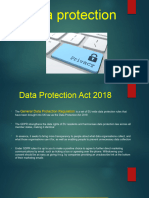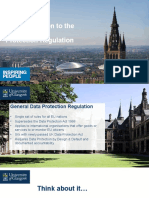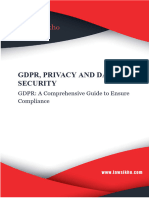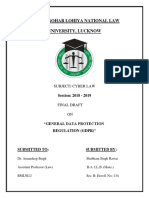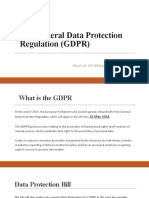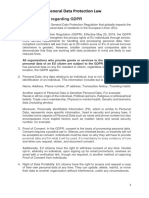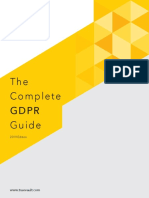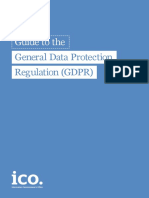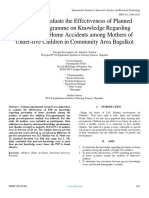0% found this document useful (0 votes)
51 views5 pagesGDPR Guide
The General Data Protection Regulation (GDPR) enforces data protection principles that grant individuals control over their personal data, requiring organizations to have a lawful basis for processing such data. It outlines the definitions of personal data, the six lawful bases for processing, and individuals' rights regarding their data. Organizations must comply with data protection principles and take appropriate measures to ensure compliance, including documenting their data processing activities and reporting any security breaches.
Uploaded by
JusticefryCopyright
© © All Rights Reserved
We take content rights seriously. If you suspect this is your content, claim it here.
Available Formats
Download as PDF, TXT or read online on Scribd
0% found this document useful (0 votes)
51 views5 pagesGDPR Guide
The General Data Protection Regulation (GDPR) enforces data protection principles that grant individuals control over their personal data, requiring organizations to have a lawful basis for processing such data. It outlines the definitions of personal data, the six lawful bases for processing, and individuals' rights regarding their data. Organizations must comply with data protection principles and take appropriate measures to ensure compliance, including documenting their data processing activities and reporting any security breaches.
Uploaded by
JusticefryCopyright
© © All Rights Reserved
We take content rights seriously. If you suspect this is your content, claim it here.
Available Formats
Download as PDF, TXT or read online on Scribd
/ 5











